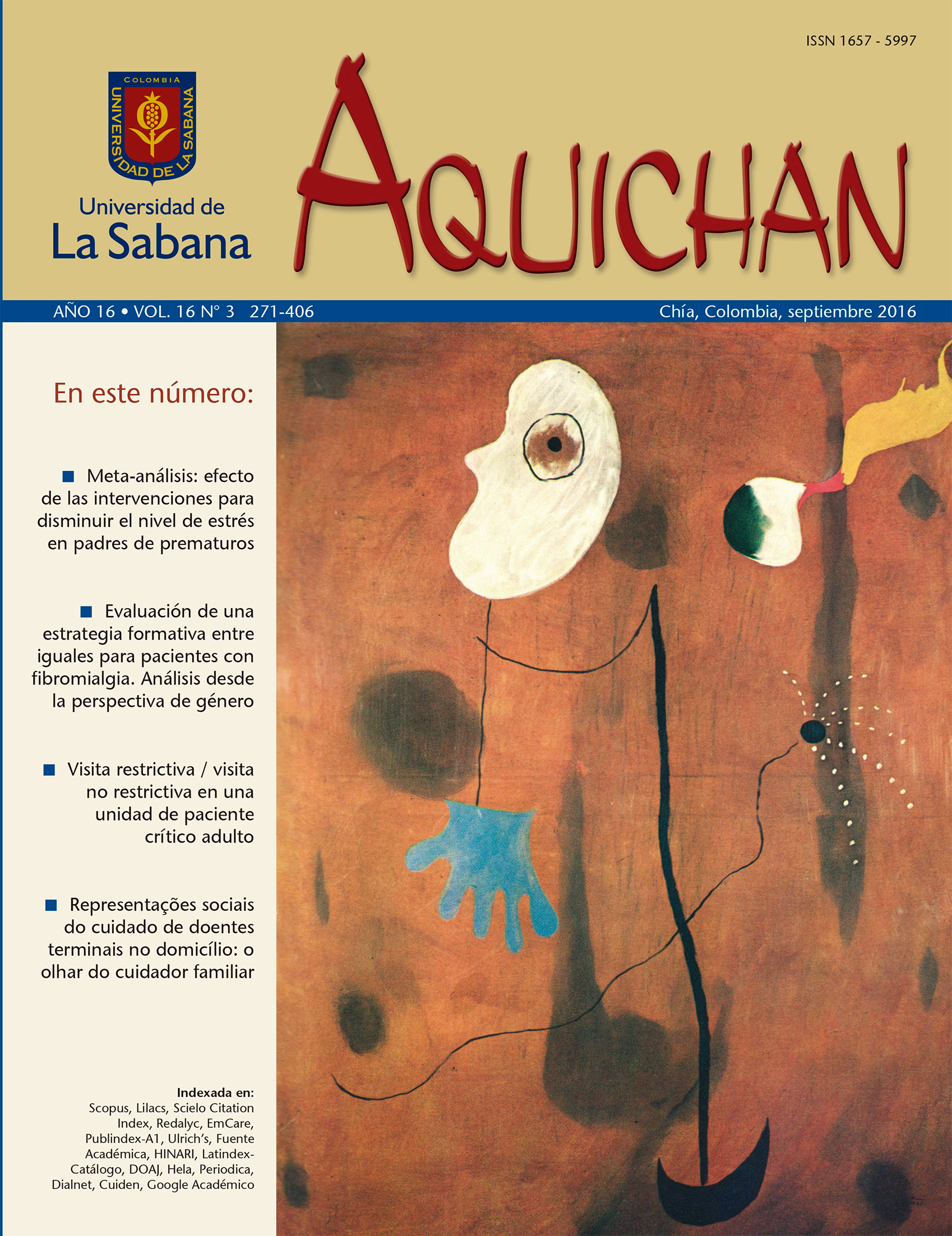Gender and Effectiveness of the Nursing Methodology in Heart Failure Patients
Keywords:
Heart Failure, Gender Identity, Care Planning, Nursing Interventions, Cardiovascular Nursing (Source, DeCS, BIREME).Abstract
Recent studies show that nurse intervention in health education in Heart Failure (HF) prevents decompensation in Heart Failure(HF). Furthermore, given gender differences in HF patterns, the interventions will also have different effects. Objective: To determinethe existence of possible differences in the effects of a nurse’s intervention regarding self-care based on the patient’s gender. Materialsand method: A quasi-experimental study was carried out with HF patients (129). They were selected at two different times: firstquarter’s control group (62) and second quarter’s intervention group (67). They were all assessed three times: first appointment, threeand six month check-ups. The intervention group underwent a nurse intervention during each visit, consisting of therapeutic education,control and monitoring of their HF. Results: Beginning: Systolic blood pressure in men 133.90±0.96 (DE 27.77), women 119.64±0.57(DE18.72). Caregiver 93% male, 63% female. Therapeutic approach 2.07+0.02 (DE0.20) men, 3.04+0.01 (DE 0.31) women. Final: self-care-16.00±2.08 (DE10.99) men, -9.68±2.22 (DE12.92) women. Therapeutic adherence 1.32±0.35 (DE1.83) men, 2.94±1.87 (DE10.93) women.Very similar improvements in the NOC of all patients. Conclusions: More women participated in the study than men; [1] the formershowed a higher percentage of comorbidity, smoking and alcohol consumption than women and they had an informal caregiver. As toself-care and adherence to treatment, no significant differences were found between genders, while quality of life was better in men. Afterthe intervention, the researchers found that all patients improved in terms of quality of life and NOC (Nursing outcomes classification),as did the self-care and therapeutic adherence of all participants. [2] It is worth noting that men scored twice as high in self-care, whilewomen did so in therapeutic adherence.
Downloads
Published
How to Cite
Issue
Section
License
1. Proposed Policy for Journals That Offer Open Access
Authors who publish with this journal agree to the following terms:
- The journal and its papers are published with the Creative Commons License Attribution-NonCommercial-NoDerivatives 4.0 International (CC BY-NC-ND 4.0). You are free to share copy and redistribute the material in any medium or format if you: give appropriate credit, provide a link to the license, and indicate if changes were made; don’t use our material for commercial purposes; don’t remix, transform, or build upon the material.





